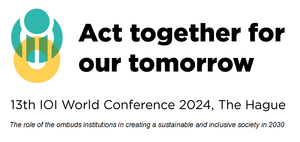Ontario Ombudsman André Marin today released his tenth annual report, marking the end of a historic year – and decade – that saw the largest investigation in the history of the office, the enactment of legislation extending the Ombudsman’s mandate to municipalities, school boards and universities, and an 86% increase in complaints received since 2009-2010.
The Ombudsman’s office handled 193,038 complaints in the past 10 years – 23,153 of those in 2014-2015. In 2005, Mr. Marin reorganized the office to create a special team for investigating systemic issues affecting large numbers of people. Some 35 systemic investigations have been conducted since then, resulting in reforms that have helped parents, property taxpayers, lottery players and millions of other Ontarians. Two major systemic investigations were completed this past year – into billing and customer service problems at Hydro One (which drew almost 11,000 complaints, the largest number of complaints ever received about a single organization) and into monitoring of unlicensed daycares (which resulted in the government accepting an unprecedented 113 recommendations).
Ombudsman staff also works quietly behind the scenes to resolve problems with government officials without need for a formal investigation. In 2014-2015, these included persuading the Ministry of Health and Long-Term Care to temporarily extend funding of a chemotherapy drug, benefiting an estimated 100 women over the next three years; ensuring inmates who were in distress and pain received the health care they needed behind bars; and helping hundreds of students and staff who were left with nowhere to turn when Everest College shut down its private career programs.
The Ombudsman flagged several serious issues to the Ministry of Community Safety and Correctional Services, including a disturbing increase in the segregation of inmates, many of whom were placed in segregation for months at a time, contrary to law and policy. At the new Toronto South Detention Centre, meanwhile, sick inmates were put in segregation because the new infirmary units were not staffed. As well, the Ministry signalled that investigations of serious inmate-on-inmate assaults would no longer be mandatory – a change of direction that Mr. Marin’s office is monitoring closely.
The office also worked to connect numerous vulnerable people with myriad government agencies and service providers when communication broke down between them, including families of people with acute special needs and others needing care and support. “Many families come to us exhausted and desperate from having to navigate multiple provincial ministries… and a multitude of ministry-funded local service providers to get help,” Mr. Marin writes in the report. “It’s no surprise that the links between all of these organizations are sometimes weak.”
In preparation for the office’s new oversight of municipalities, universities and school boards, Mr. Marin notes that his office is consulting with stakeholders, including partnering with Canada’s Public Policy Forum to convene a series of roundtables and an informational conference this fall.
You can download the entire annual report here.
Source: Ontario Ombudsman, Canada

